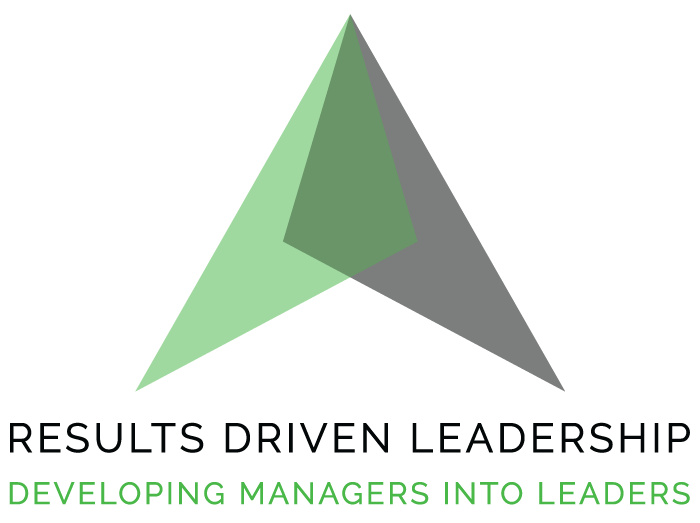In the dynamic world of leadership and management, acquiring new skills is not just about understanding theory but also about practical application.
Role-playing emerges as a crucial tool in this context, especially for leadership-related skills. It’s a method that transcends traditional learning, offering a unique blend of practice, feedback, and confidence-building.
Unleash the Power of Role-playing
Discover the transformative benefits of role-playing in leadership training. It goes beyond a simple exercise, serving as a highly valuable rehearsal for real-life situations. By stepping into your own shoes and fully immersing yourself in a real-world scenario, you will acquire the necessary skills to communicate and enhance your ideas effectively.
Don’t underestimate the significance of including crucial details and important structures that are crucial for success. Just like actors and athletes dedicate hours to rehearsing and practicing, role-playing in leadership training builds confidence, an essential trait for business leaders.
Say goodbye to regretful afterthoughts about what you should have said or how you should have said it. Instead, be prepared to respond thoughtfully and confidently. Embrace the opportunity to refine your vital leadership behaviors without the burden of overthinking. After all, would you rather practice on an employee, in front of a mirror, or with a trusted advisor or mentor?
As you conduct your role plays, ensure you have access to the key points of your new skill. As you complete each role play either give yourself a score on how well you included the key elements you are practicing or, even better, have someone else give you feedback on how you captured and included the essential elements.
To truly master and perform a new skill effectively, it is not sufficient to solely rely on reading a book or watching a video tutorial. These methods, while informative, are just the initial steps in the learning process. Active practice and receiving constructive feedback are essential to develop proficiency and confidence in any skill. It’s important to aim for the highest level of skill execution possible right from the beginning of your learning journey.
This brings us to a deeper understanding of how we actually learn, a concept that is often overlooked or underestimated in the realms of business and management. The process of learning is multifaceted and is best approached through a comprehensive framework comprising four key tenets: reading, hearing, practice, and feedback.

Reading
Reading is a fundamental aspect of learning. It allows individuals to absorb information at their own pace, revisit complex concepts, and build a strong theoretical foundation. Through reading, learners engage with various perspectives and ideas, expanding their knowledge base. This self-paced exploration is crucial for developing a deep understanding of subjects, as it allows learners to process information in a structured and detailed manner. Moreover, reading enhances vocabulary, improves comprehension skills, and fosters critical thinking, making it an indispensable part of the learning process.
Hearing
Hearing, or auditory learning, involves absorbing information through listening. This can be through lectures, discussions, audio recordings, or informal conversations. Auditory learning is particularly effective for those who process information better when they hear it. It allows learners to grasp nuances in tone, emphasis, and context often lost in written communication. Hearing also facilitates learning in group settings, encouraging interaction and discussion, which can lead to a deeper understanding of the subject matter. Additionally, auditory learning can be more dynamic and engaging, making it easier for some learners to maintain focus and interest.
Practice
Practice is the application of knowledge or skills through repeated exercises or real-world implementation. It is often said that practice makes perfect, and this is particularly true in learning. Through practice, theoretical knowledge is transformed into practical skills. This active engagement with the material helps solidify learning, as it requires the learner to apply what they have read and heard. Practice also aids in identifying areas of strength and weakness, allowing learners to focus their learning efforts more effectively. Practice is the key to mastering skills in many fields, such as language learning, sports, or music.
Feedback
Feedback is the process of receiving information about one’s performance or understanding. It is a critical component of the learning process as it gives learners insights into their progress and areas needing improvement. Effective feedback is specific, constructive, and timely, enabling learners to adjust and refine their skills. Feedback can come from teachers, peers, mentors, or even self-reflection. It serves as a guide, helping learners understand whether they are on the right track and how to improve. In many learning environments, feedback loops are established to ensure continuous improvement and adaptation.
I cannot overstress that the four tenets – reading, hearing, practice, and feedback – work synergistically to create a robust and dynamic learning experience. They cater to different aspects of learning, ensuring that information is absorbed, understood, applied, and refined. This holistic approach to learning is essential for deep, effective, and lasting knowledge acquisition.
Confidence Through Practice
One of the most significant benefits of role-playing is the boost in confidence it provides. Practicing a new skill in a controlled, low-risk environment allows leaders to iron out kinks in their approach before they face real-world situations. This rehearsal is crucial in building self-assurance and competence.
The Feedback Loop
When role-playing is done with a trusted colleague or mentor, it opens up an invaluable feedback loop. Constructive criticism and honest feedback are essential for growth. This process helps in refining skills and strategies, making them more effective and adaptable to different situations.
A Personal Experience with Role-Playing

Literally in my 40-plus years of experience everyone I’ve ever asked to role-play is hesitant and feels goofy about it. I even remember how my own self-esteem and ego were challenged and resistant to role play in my early stages of learning. It is perceived as embarrassing, and we feel like we are exposing a weakness. A weakness that many of us placed unwarranted pressure on ourselves to be knowledgeable of or proficient at.
Recently, I had the opportunity to work with a sales team preparing for an upcoming trade show. To close out the training session, I had them engage in role-playing exercises, focusing on conducting discovery discussions with potential clients.
Initial Hesitation
Initially, there was a sense of reluctance and discomfort among the team members. Many felt that role-playing was a bit goofy and were skeptical about its effectiveness.
The Turning Point
However, as the exercise progressed, the team members started seeing its value. They realized that their preconceived notions of how a conversation would go were often different from how it unfolded in the role play. This revelation was eye-opening.
Key Takeaways
The most significant takeaway from this exercise was the understanding that without practice, they could have been unprepared, incomplete in their approach, and lacking confidence. The role play helped them to anticipate different scenarios and adapt their strategies accordingly.
Best Practices for Role-Playing
As an Individual
- Set Clear Objectives: Understand what skill or scenario you are trying to improve or learn.
- Create Realistic Scenarios: The closer the role play is to real-life situations, the more effective it will be.
- Reflect and Adapt: After each session, take time to reflect on what went well and what could be improved.
When Leading a Group
- Foster a Safe Environment: Encourage an atmosphere of trust and non-judgment, where participants feel comfortable experimenting and making mistakes.
- Diverse Scenarios: Include a variety of scenarios to cover different aspects of the skill being practiced.
- Encourage Feedback: Promote constructive feedback among participants. This not only helps the individual practicing but also develops critical thinking in those providing feedback.
Role playing is a powerful tool in the arsenal of leadership development. It bridges the gap between theory and practice, providing a safe space to experiment, learn, and grow. By incorporating role-playing into leadership training, individuals and teams can enhance their skills, build confidence, and prepare more effectively for the challenges of the business world.
Role playing is an effective method for developing a wide range of leadership skills. By simulating real-life scenarios, leaders can practice and refine these skills in a controlled environment.
Here’s a list of key leadership topics along with the essential elements that should be practiced through role-playing:
- Difficult Conversations
- Understanding Perspectives: Practice listening to and understanding different viewpoints.
- Negotiation Skills: Develop strategies for finding common ground.
- Emotional Intelligence: Learn to manage emotions and respond calmly in tense situations.
- Effective Communication
- Clarity and Conciseness: Focus on delivering clear and concise messages.
- Active Listening: Practice listening actively and empathetically.
- Non-Verbal Cues: Understand and use body language effectively.
- Critical Thinking
- Analyzing Scenarios: Simulate complex situations requiring critical decision-making.
- Risk Assessment: Evaluate potential risks and benefits of different decisions.
- Consensus Building: Practice involving team members in the decision-making process.
- Change Management
- Communicating Change: Practice how to effectively communicate change initiatives.
- Handling Resistance: Simulate scenarios where team members are resistant to change.
- Adaptability: Develop strategies to adapt to and manage changing circumstances.
- Delegation
- Task Allocation: Practice identifying the right tasks to delegate to the right people.
- Empowerment: Learn how to empower team members through effective delegation.
- Follow-up Strategies: Develop methods for following up without micromanaging.
- Emotional Intelligence
- Self-awareness: Role play scenarios that help in recognizing one’s emotions and their impact.
- Empathy: Practice understanding and sharing the feelings of others.
- Self-regulation: Learn to control or redirect disruptive impulses and moods.
- Strategic Thinking
- Long-term Planning: Simulate scenarios for developing long-term strategies.
- Problem-solving: Practice identifying and solving complex problems.
- Innovation: Encourage creative thinking and innovation in decision-making.
- Coaching and Mentoring
- Feedback Delivery: Practice giving constructive feedback.
- Guidance Techniques: Develop skills in guiding team members towards their goals.
- Career Development: Role play scenarios that involve discussing and planning career development.
- . Public Speaking and Presentation
- Speech Delivery: Practice delivering speeches with confidence and clarity.
- Audience Engagement: Learn techniques to engage and connect with an audience.
- Persuasion Skills: Develop persuasive communication techniques.
Role playing these leadership skills allows individuals to experiment, make mistakes, and learn in a safe environment. It’s a hands-on approach to leadership development that can significantly enhance a leader’s ability to handle real-world challenges effectively.





